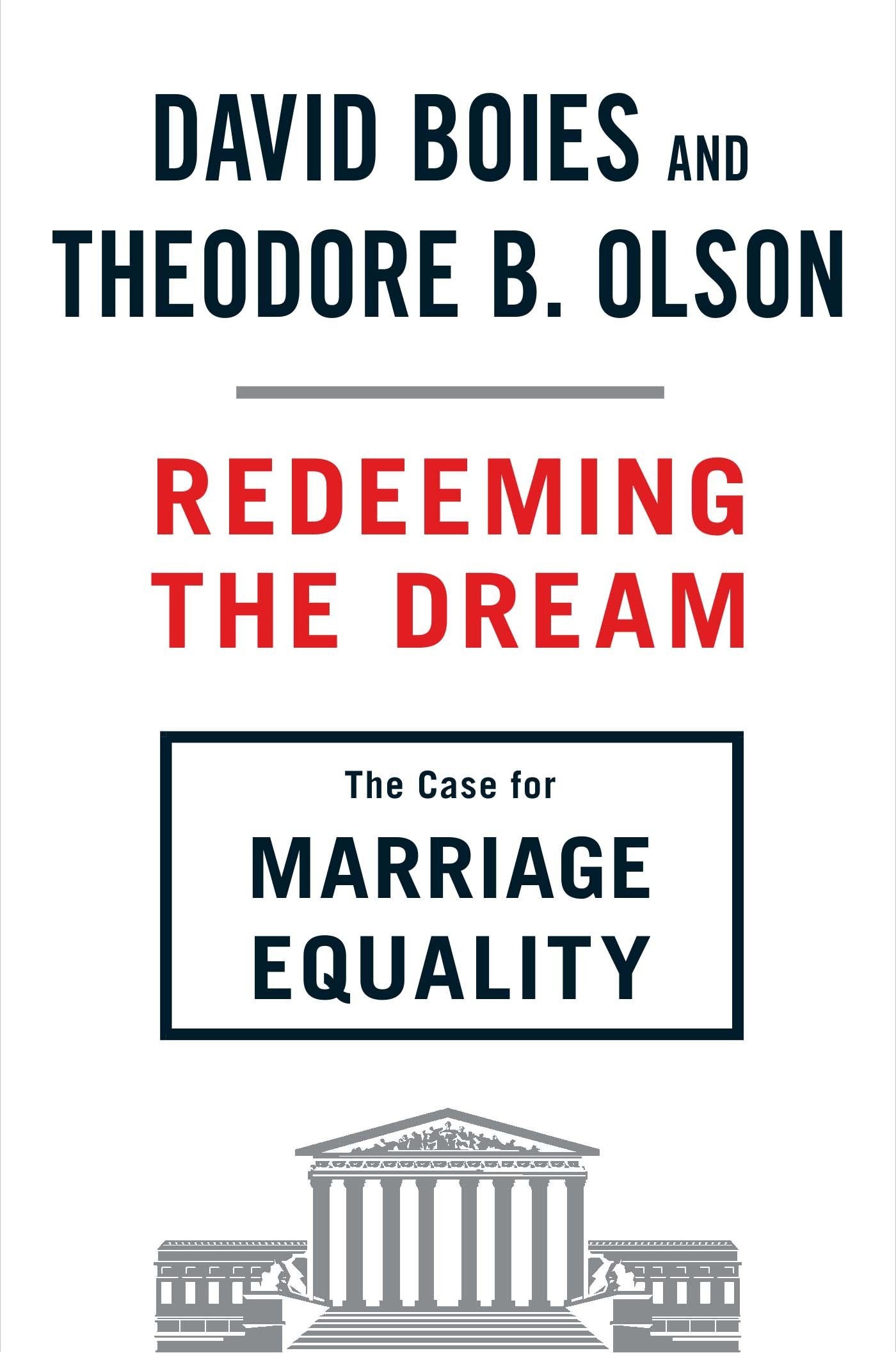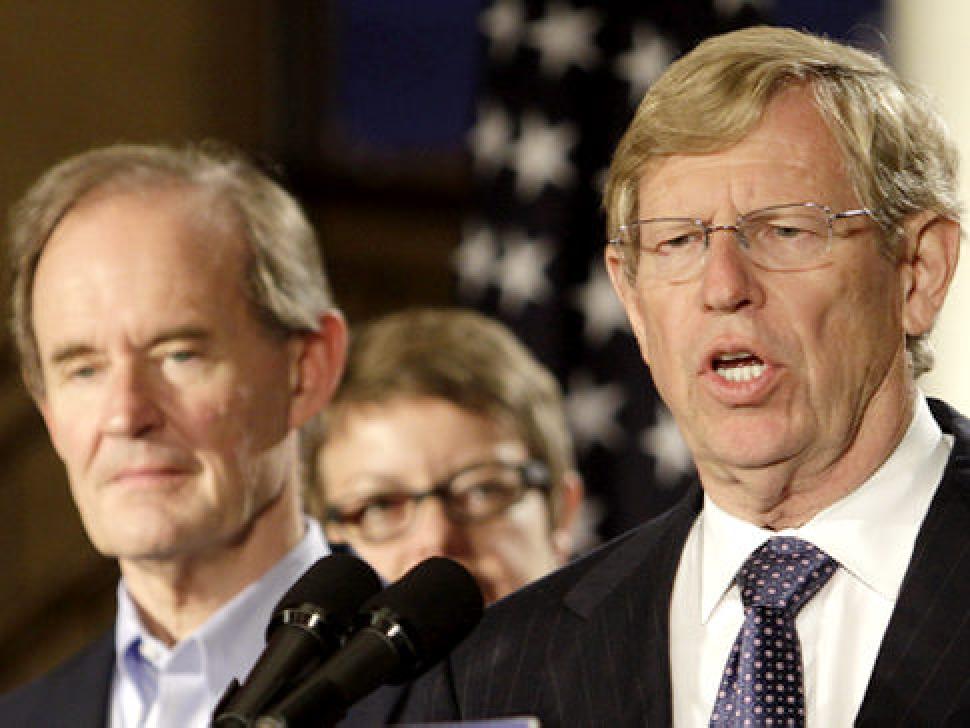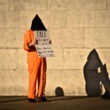Redefining the Dream: The Case for Marriage Equality is David Boies and Ted Olson’s attempt to cast themselves as the driving force behind legalizing gay marriage. The pair write that they hoped their challenge to California’s Proposition 8 would “change the course of history” and serve as a “critical step in the process of changing not only California but, we hope, America and the world.” While their immediate goal was to overturn Prop. 8, the suit was aimed at the U.S. Supreme Court, where Boies and Olson hoped justices would issue a broad ruling striking down all bans on same-sex marriage across the country. Hollingsworth v. Perry would be the gay-rights movement’s Brown v. Board of Education.

Redeeming the Dream: The Case for Marriage Equality By David Boies and Theodore B. Olson. Viking, 320 pp., $28.95.
Except it wasn’t.
Boies and Olson—courtroom adversaries in the 2000 Bush v. Gore litigation—won at the trial court in San Francisco, but after nearly four years of complicated legal wrangling and appeals, the Supreme Court handed them a narrow victory. Rather than rule on the merits of the case, justices found supporters of Prop. 8—who took on the task of defending the law when Gov. Arnold Schwarzenegger and Attorney General Jerry Brown declined to defend it in court—did not have standing to appeal a lower-court ruling. The Court’s finding restored gay marriage to California, but denied Boies and Olson the broad victory they’d set out to achieve.
So their lawsuit did little to change a game that was well underway. Far more important was United States v. Windsor, which came down the same day as the Prop. 8 decision. In Windsor the Supreme Court struck down the Defense of Marriage Act, opening the door for federal recognition of same-sex marriage. The legal reasoning set by Justice Anthony Kennedy in the case, which established a heightened level of judicial scrutiny for laws targeting gays and lesbians, has blown the legal landscape open wide. In the year since it was issued, the ruling has served as the linchpin in lawsuits striking down gay-marriage bans across the country—in New Mexico, New Jersey, Utah, Oklahoma, Virginia and Kentucky.
This is not to say that Boies and Olson’s win for marriage equality in California was insignificant. But at the time Prop. 8 passed in 2008 by 52-48 percent, public opinion in California was at a tipping point; the irony of the law’s passage is that it was in that same year that polling showed, for the first time, a majority of voters in California supported same-sex marriage. Had Boies and Olson not brought their case, in all likelihood Prop. 8 would have been reversed via another ballot initiative.
Boies and Olson’s suit does have its place in history, but it is documentary. Thanks to U.S. District Judge Vaughn Walker, what’s left behind is a stunning snapshot—a microcosm, even—of the national debate over same-sex marriage. Walker asked both parties to present evidence on the full spectrum of issues—the purpose and history of marriage; the nature of homosexuality; the history and psychological effects of discrimination against gays and lesbians; their suitability as parents; the motivation behind the proponents of Prop. 8; the potential harm of allowing gays to marry. In effect, what Walker did was put prejudice on trial.
For the first time in any courtroom, opponents of marriage equality were asked to make the secular case for restricting marriage to heterosexual couples.
For the first time in any courtroom, opponents of marriage equality were asked to make the secular case for restricting marriage to heterosexual couples, to argue for the exclusion of gays as more than a self-justifying tradition. To read the courtroom transcripts, the findings of fact in Walker’s ruling, or Boies and Olson’s account of the trial, is to watch the case against gay marriage falling apart. One by one, the expert witnesses called by the defense were found either to have insufficient expertise in the fields of study they were supposed to testify on or, even more remarkable, came to side with supporters of gay marriage. All but one dropped out before proceedings began. At trial, even lead counsel Chuck Cooper, when asked how same-sex marriage would harm the institution, had to concede, “I don’t know. The answer is, I don’t know.”
Boies and Olson paint a powerful portrait of the discrimination gays and lesbians faced, and the harm and stigma denying them the right to marry had caused.Their plaintiffs testified about their struggles to accept their sexuality, falling in love with each other, and the humiliation of having their right to marry stripped away. One witness described his failed attempts to change his sexual orientation, which led him to contemplate suicide. An array of sociologists, psychologists, political scientists and historians testified about the history of marriage and discrimination. Most striking was the evidence presented about the motivations behind the ballot initiative. Vicious materials from the Yes on 8 Campaign accused gays of being 12 times more likely to molest children (an entirely fabricated statistic); a danger to children in schools; of spreading disease. The trial laid bare the prejudice behind Prop. 8 in a way that has seldom been seen in a courtroom.
The days in which respectable people are willing to take up the case against gay marriage in court are numbered. But the record is there for posterity. Our children will read these transcripts or accounts of the trial and wonder how that could have ever happened in America.
Gabriel Arana is a contributing writer at Salon and a contributing editor at The American Prospect.







Very illuminating commentary in this book review, of why the attitudes toward gay marriage have changed so quickly. The opponents had a really hard time making their case.